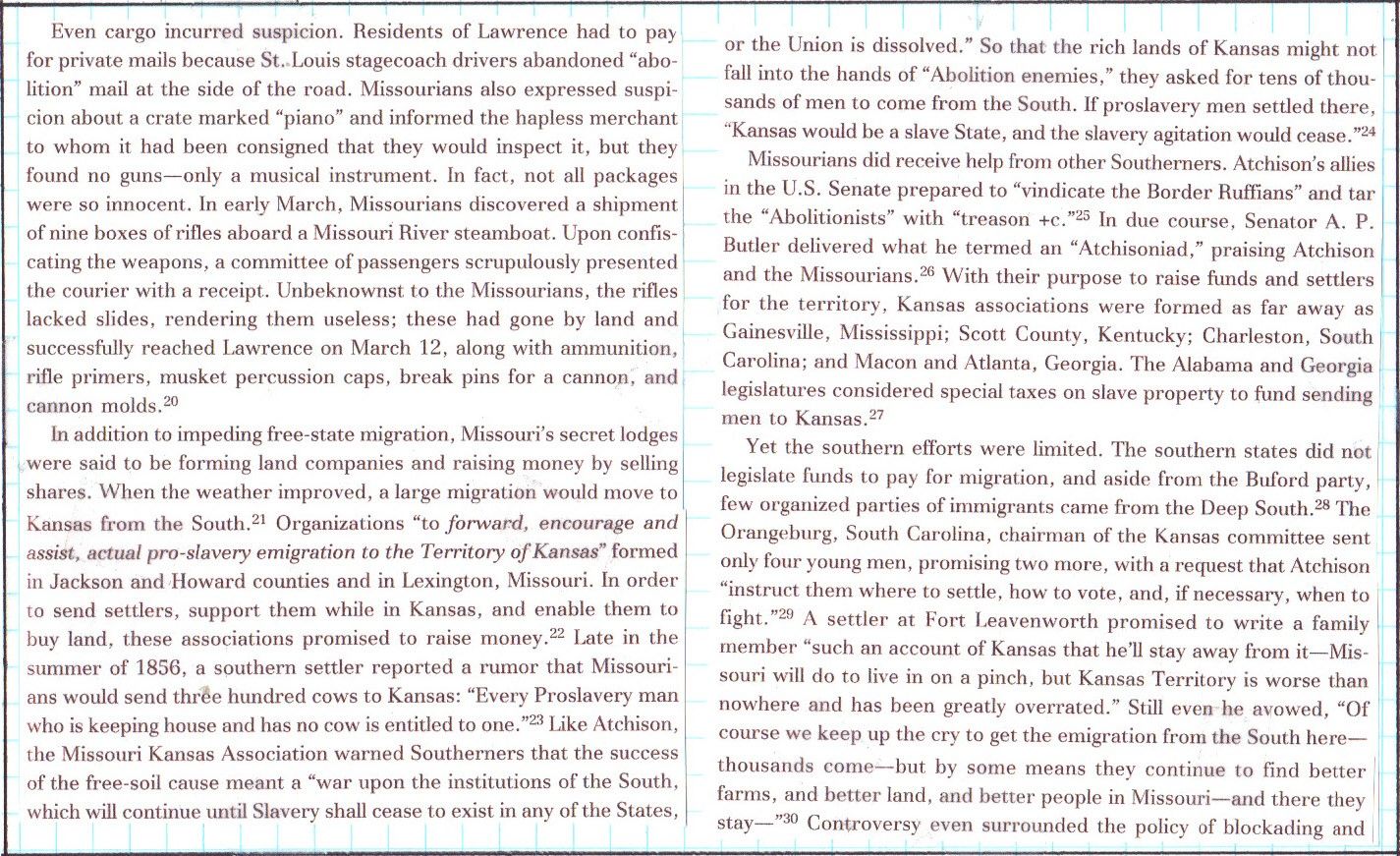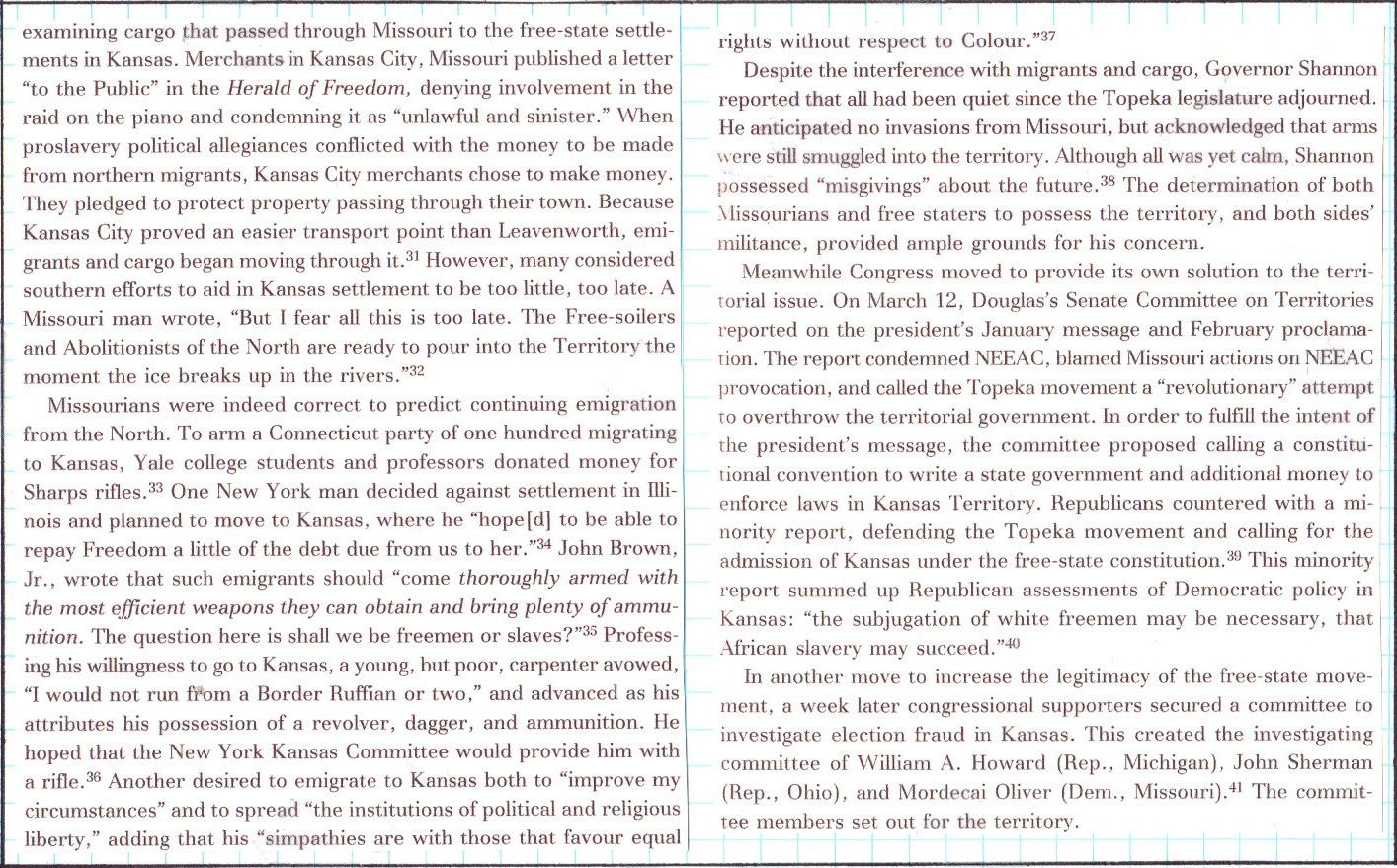

Nicole Etcheson, "Bleeding Kansas: Contested Liberty in the Civil War Era"


Nicole Etcheson, "Bleeding Kansas: Contested Liberty in the Civil War Era"
The “censorship” of U. S. Mail began almost simultaneously with the abolition movement. The steam presses of New York went to work in the production abolitionist pamphlets and other propaganda, and were meant to be disseminated in the south (the abolitionists knew that live “agents” sent there would become dead agents). From the outset, the South began a program of censorship of abolitionist papers by using the U. S. Postmasters as their agents.
There was a debate in the mid to late 1830s between President Jackson and Senator Calhoun of South Carolina as to the best means of accomplishing the censorship. Jackson favored a federal law and policy to suppress the “unconstitutional and vile agitation to insurrrection.” Calhoun favored state laws making the importation of abolition publications “contraband” to be enforced by the postmasters. Neither side really liked the approach of the other. Calhoun realized that the Federal law was a violation of the 1st Amendment, and he didn’t like setting a precedent of a federal law interfering in what he saw as a state matter. But Calhoun had no problem with the states doing it, as prior to the 14th Amendment, the 1st Amendment only applied to Congress, not the states. Jackson didn’t like Calhoun’s approach is it was an extension of the doctrine of “State’s nullification,” and he had previously threatened the use of military force to compel South Carolina to follow U. S. Customs law in a prior nullification dispute.
The result was that no formal law was passed, but the postmasters, who at the time wielded considerable power and influence as the only agents of the Federal government in a local community, got the sense of their instructions and began searching mails and confiscating abolitionist materials. At first, this was as popular a measure in the north as in the south. However, the fact that private mails were being searched and seized by the federal government began to cause qualms in the north, was the initiation of bringing northern sympathy toward the abolitionists and away from southern slaveholders.